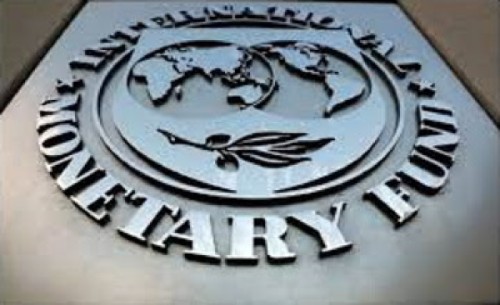OSEAU, Dominica – The International Monetary Fund (IMF) says the Dominican economy is “is expanding strongly” but faces headwinds from global inflationary shocks.
 “Severely affected by the pandemic, real GDP (gross domestic product) growth is estimated to have reached 6.9 percent in 2021 and 5.7 percent in 2022, driven by construction of climate-resilient infrastructure, a rebound in tourism since the full lifting of COVID-related restrictions in April 2022, and a substantial rise in agricultural output,” said Joana Pereira, who led an IMF delegation to the island on a two week Article IV consultation.
“Severely affected by the pandemic, real GDP (gross domestic product) growth is estimated to have reached 6.9 percent in 2021 and 5.7 percent in 2022, driven by construction of climate-resilient infrastructure, a rebound in tourism since the full lifting of COVID-related restrictions in April 2022, and a substantial rise in agricultural output,” said Joana Pereira, who led an IMF delegation to the island on a two week Article IV consultation.
She said global commodity price pressures aggravated by Russia’s war in Ukraine, notably oil and food, in tandem with high shipping costs, pushed inflation up to an estimated 7.5 percent in 2022, despite mitigating price policies including fuel subsidies, custom fees waivers, and value added tax (VAT) cuts for electricity.
Pereira said the current account deficit, which has fallen substantially since Hurricane Maria and COVID shocks, remained elevated at 28 percent of GDP in 2022 on account of unfavorable terms of trade, large imports of investment goods, and incomplete recovery in tourism receipts.
She said high Citizenship-by-Investment (CBI) revenue has supported public investment and crisis response measures, but fiscal space remains tight.
“Despite record high CBI inflows, nearing 30 percent of GDP, the primary balance deteriorated to minus 6.2 percent in financial year 2021/22. The construction of resilient infrastructure – roads, housing, hospitals, and shelters – and a new airport kept public investment at high levels, while economic measures implemented in response to the pandemic and the cost-of-living crisis heightened current expenditures and weakened tax revenue.”
Pereira said the economic outlook is positive, predicated on a full recovery in tourism in the near term, implementation of public investment plans, and prudent fiscal management. She said growth is expected to stay above 4.5 percent in 2023-24, as tourism returns to pre-COVID levels, and the construction of the new international airport and geothermal power plant take hold.
She said inflation is projected to recede to 6.3 percent in 2023 and to continue falling afterwards along with international trends.
“The current account deficit is expected to gradually narrow over the medium term with the increase of tourism exports, on the back of expanded hotel and air transport capacity, the normalization of commodity prices, and a steady decline in investment goods’ imports. Public debt is set to decline in coming years, albeit slowly, supported by a gradual consolidation of public finances.”
However, Pereira said downside risks remain, stemming from global economic uncertainty, climate change, and volatility of CBI revenue.
She said external risks from geopolitical tensions or tighter global financial conditions cloud the outlook for trade, commodity prices and global demand, with significant spillovers to the Dominican economy.
The IMF official said public debt declined somewhat, to 107 percent of GDP, but stays above regional peers and constrains fiscal space going forward.
She said the financial sector enjoys ample liquidity and improving capital buffers, yet credit to the private sector is subdued.
“Given abundant liquidity, deposit and lending rates remain low and have fallen in some sectors, despite tighter global financing conditions and exit of non-indigenous banks in recent years.
“Banks have strengthened provisions in line with ECCB (Eastern Caribbean Central Bank) requirements and remain well capitalized, while the implementation of credit unions’ recapitalization plans is progressing. Meanwhile, credit to the private sector has underperformed relative to GDP growth, while bank exposure to the public sector grew since the pandemic.”
Pereira said disruptions in corresponding banking relationships (CBR) could raise barriers to trade.
“To safeguard room for climate resilience investments and ensure compliance with the regional debt target, fiscal consolidation efforts should redouble,” she said, adding that a consolidation path in line with the national fiscal rule of raising the primary balance to two percent of GDP by 2026, is necessary to reach the 60 percent public debt target by 2035.
“The plan should be underpinned by a sizeable improvement of non-CBI fiscal balances, while protecting investment and other priority programs. Stronger fiscal consolidation would facilitate external re-balancing and reduce the exposure of the financial system to the public sector.”
She said more ambitious reforms will be necessary to underpin the growth friendly fiscal consolidation.
The IMF official said continued efforts to modernize the economy and strengthen economic resilience are necessary, including through policies that foster diversification and inclusiveness.
“The transition to geothermal energy will reduce carbon emissions, lessen external vulnerabilities, and increase economic competitiveness over medium term through lower energy costs.
“The new international airport will significantly boost connectivity with large markets and should be accompanied by efforts to enhance regional connectivity. Initiatives to support the agricultural sector are welcome and should be furthered to broaden the export base and explore synergies with the growing tourism sector.”

